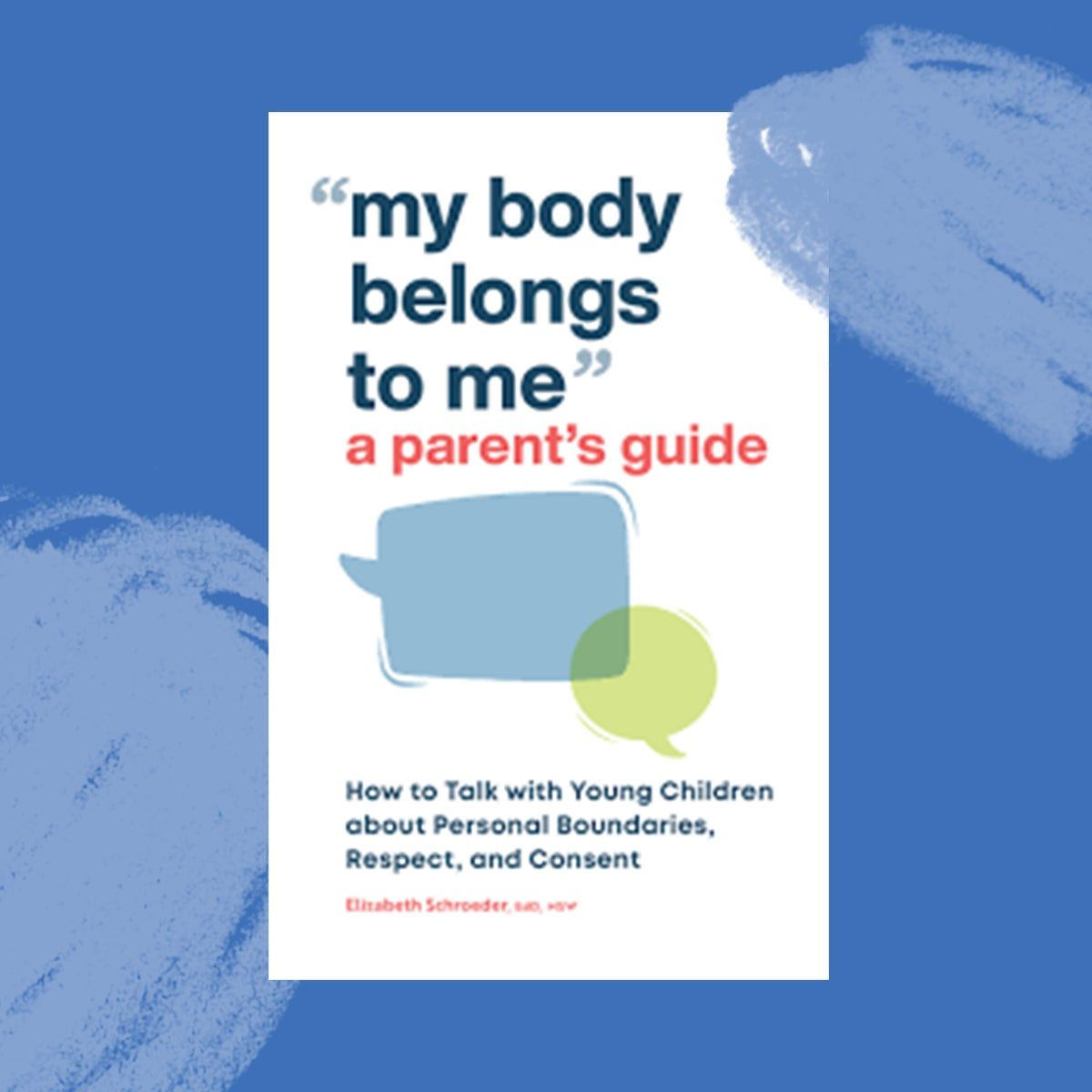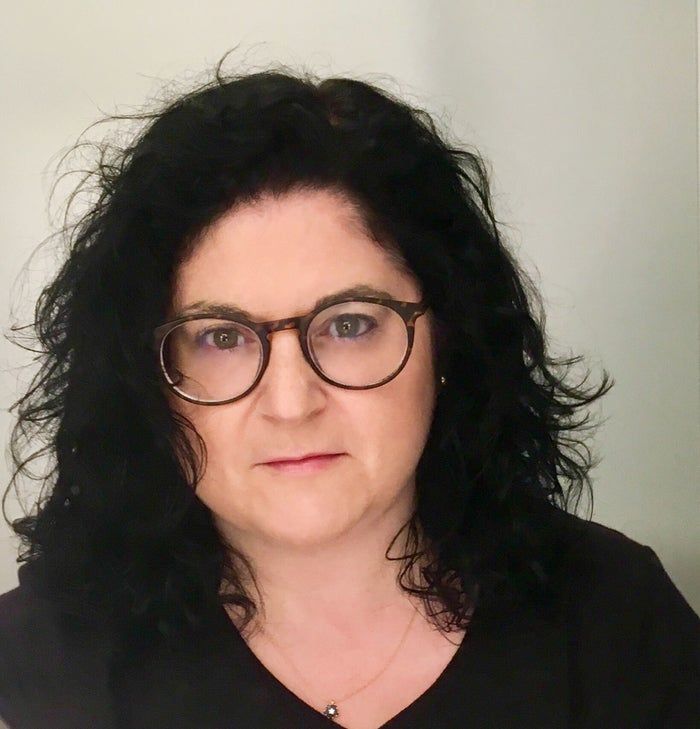
Book Club
It’s Never Too Early to Teach Kids Consent
Under the best of circumstances, when parents talk to their children early and often about respecting personal boundaries, they can hope to avoid uncomfortable situations (if your child has ever barged uninvited into your room at an awkward moment, you can relate). More importantly, by keeping the conversation going and modeling a culture of consent for kids, we can help them learn to protect their body autonomy in any situation. We talked to Dr. Elizabeth Schroeder, author of My Body Belongs To Me, about how parents can teach even the youngest children about setting boundaries for themselves and respecting the boundaries of others.
- Written By
- Jenna Gabrial Gallagher
Teach Kids About Their Bodies Using Accurate Terms
Parents can begin to create a culture of consent on Day One by teaching kids about their own bodies using medically recognized words.
“Most adults are comfortable using the correct terms for body parts, but once you add a child to the mix, there’s a cognitive dissonance,” Schroeder says. “They’re worried that they’re sexualizing their child by using the words, but really little kids hear them as just words. A nose is a nose; a vulva is a vulva. Children don’t attach a meaning to them until we do.”
Silly words, like boobies and winkie, objectify body parts—plus, when kids grow out of using them, they may fill in the blanks with less respectful slang because they never got comfortable with the correct words. Well-intentioned words like “private parts” are also problematic. Parents employ these euphemisms to try to teach children that certain parts of their bodies are for them and them alone, but Schroeder recommends avoiding them for two reasons.
First, the concept of privacy is an abstract one for younger children. You can explain what it means (“When I go into the bathroom and close the door, it means I need some privacy—to just be by myself. So please don’t come in unless you knock and I say it’s okay.”); but attaching it to something concrete like a part of the body can lead to confusion or convey that there’s something shameful about that particular organ.
Secondly, children who can identify their body parts by their appropriate medical terms are able to communicate more clearly with trusted adults. Not only is that helpful for routine doctor visits, but research has shown that it’s an important deterrent to sexual abuse and helps empower children to accurately report if abuse does occur.
Model Asking For Consent
For parents of young children, getting all up in their personal boundaries is all in a day’s work. We bathe them, change diapers, wipe genitals, apply creams and ointments, clean ears and noses, and fish choking hazards out of their mouths. As adults, it’s hard to imagine letting someone do any of that to us!
But these invasive acts of caregiving actually provide parents with an early opportunity to model consent for our kids. Even before they learn to speak, we can inform them of what we’re about to do, “Now, I’m going to wipe your penis. Okay?”
Parents who weren’t raised this way might bristle at the idea that they have to ask every time they want to touch their child. Still, Schroeder says that once you know that your child is okay with you making physical contact in a certain way—say, hugging at school drop off—you can continue to do it until they let you know otherwise.
“We don’t want to have sterile relationships with our children; we want to have respectful ones,” she says. “Sometimes it can feel like just as we get to know our kids, they morph into something else. But most of the time, parents instantly know when they put their hand on a child if that’s the wrong thing to do at that time. If you mess up, the key is knowing how to manage it: you acknowledge that they didn’t want it, apologize, and don’t do it again without their permission.”
You can always do a temperature check in the moment. When her own son was a teen and Schroeder wanted to offer a comforting hug, she’d say, “I’m going in…” and then pause to make sure he was okay with it. If not, she’d ask how she could support him in another way.
Personal Boundaries Are For Everyone
For kids, consent is most easily understood in terms of permission. Sometimes you can have a cookie, sometimes you can’t. But you always have to determine whether it’s okay first. “What we want to engender is that people have the right to say how their bodies interact with the world,” Schroeder says.
If you’re playing Tickle Monster with your child and stop when they tell you to stop, they have an example of how to act when they’re roughhousing with friends or siblings. Likewise, if you don’t enter a room without knocking, they will learn not to do it either. It all seems perfectly reasonable… until relatives come into the picture.
Schroeder has said that one area where she gets the most pushback from parents who are otherwise all in on establishing a culture of consent for their kids has to do with forced affection from older adults in the family. This plays out something like, “Oh, come on, don’t you want to give Grandma a kiss?”
“We want our parents to be connected to our children, and we’re worried about our children hurting their feelings,” Schroeder says. “But really, we need to flip that script. We are responsible for demonstrating to our child that others need to respect their boundaries.”
If an older relative insists on doing something that makes your child uncomfortable, it’s important to communicate to everyone involved that you know your child is in the right. They’re in charge of their own bodies, not other people’s feelings.
Schroeder advises speaking to your child about alternative ways they can show affection. “Let them know that Grandpa loves them and asking for hugs is how he likes to show it. Then ask how they would like to show they love Grandpa. The best thing we can do is set up an enabling environment so our children can work it out with our parents themselves. It builds self-efficacy and lets kids know that you know they’ve got this.” (Although it doesn’t hurt for parents to be present in case of any bumps in the conversation.)
Let Them Know You Have Their Back
Even when things are humming along nicely, Schroeder says it’s good to keep the topics of personal boundaries and consent on the list of recurring talking points.
“You want to constantly reinforce that they can come to you with anything, that there’s nothing they can’t tell you. Let them know that they should come to you if someone asks them to keep a secret. And that if that person has threatened you or your child if they tell, you will know how to handle it,” Schroeder says. “When the rubber meets the road, and they do tell you something—even if it’s something minor—you can demonstrate that you meant what you said and you’re glad that they trusted you.”
Conversely, Schroeder says, when kids come to you and ask personal questions about things you’ve done in your life, you don’t have to divulge everything. “We’ve all done things we don’t want our child to do—or not done things we do want them to do—and there’s no guarantee they’re going to take away what we want from that kind of conversation. Instead, you can say, ‘It’s okay that you asked that, but I want to keep those boundaries.’ This allows you to maintain your privacy without feeling punitive or shutting down the lines of communication.”
Repetition and Consistency are Key
In My Body Belongs to Me, Schroeder writes, “Inconsistency is the enemy of bodily autonomy.” She’s also a big fan of repetition. “One of the biggest mistakes parents make is thinking that because they have said something once, their child will be able to remember it.”
Instead, she says, it’s best to think of conversations around body boundaries and respect like a song: if your kids hear it often enough—and see it modeled enough—it will be impossible for it not to get stuck in their heads.
Schroeder also wants parents to know that—while it’s never too early to start—it’s not too late either. “Look at it this way,” she reasons. “If you’ve been doing something a certain way for years and you want to make a change, your kids are probably old enough to understand you when you explain that things are going to be a little different moving forward. You have time to fix it.”
Elizabeth Schroeder

Elizabeth Schroeder, EdD, MSW, is an award-winning educator, trainer, consultant, and author specializing in parent-child communication about sexuality-related topics. She has provided consultation and training for schools and organizations around the world for nearly 30 years. She holds a Doctorate of Education from Widener University and a Master of Social Work from New York University. For more information, visit her website at www.drschroe.com.
Jenna Gabrial Gallagher is a writer and editor who specializes in topics related to lifestyle and design, families, women entrepreneurs, travel and sustainability. She has three funny little girls.